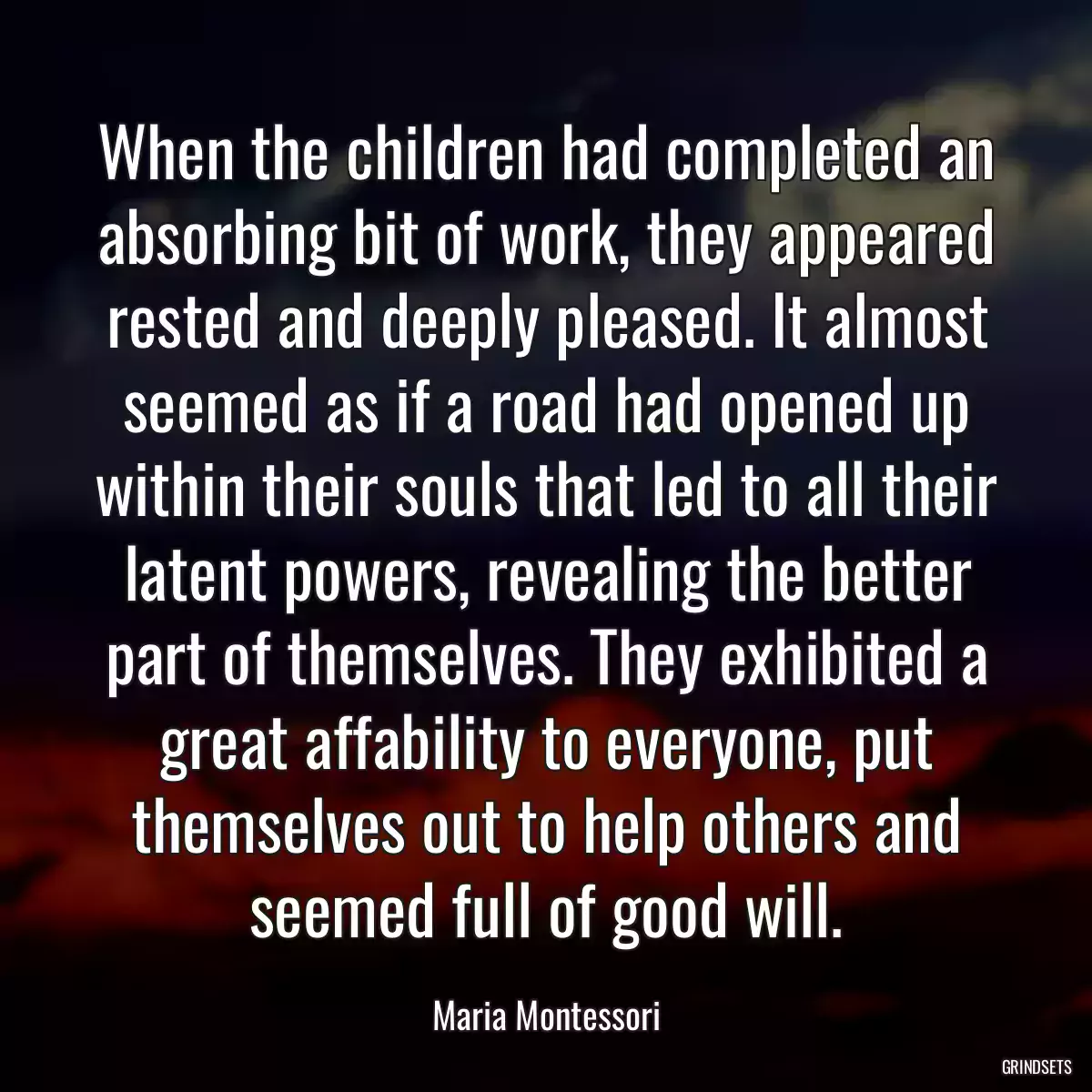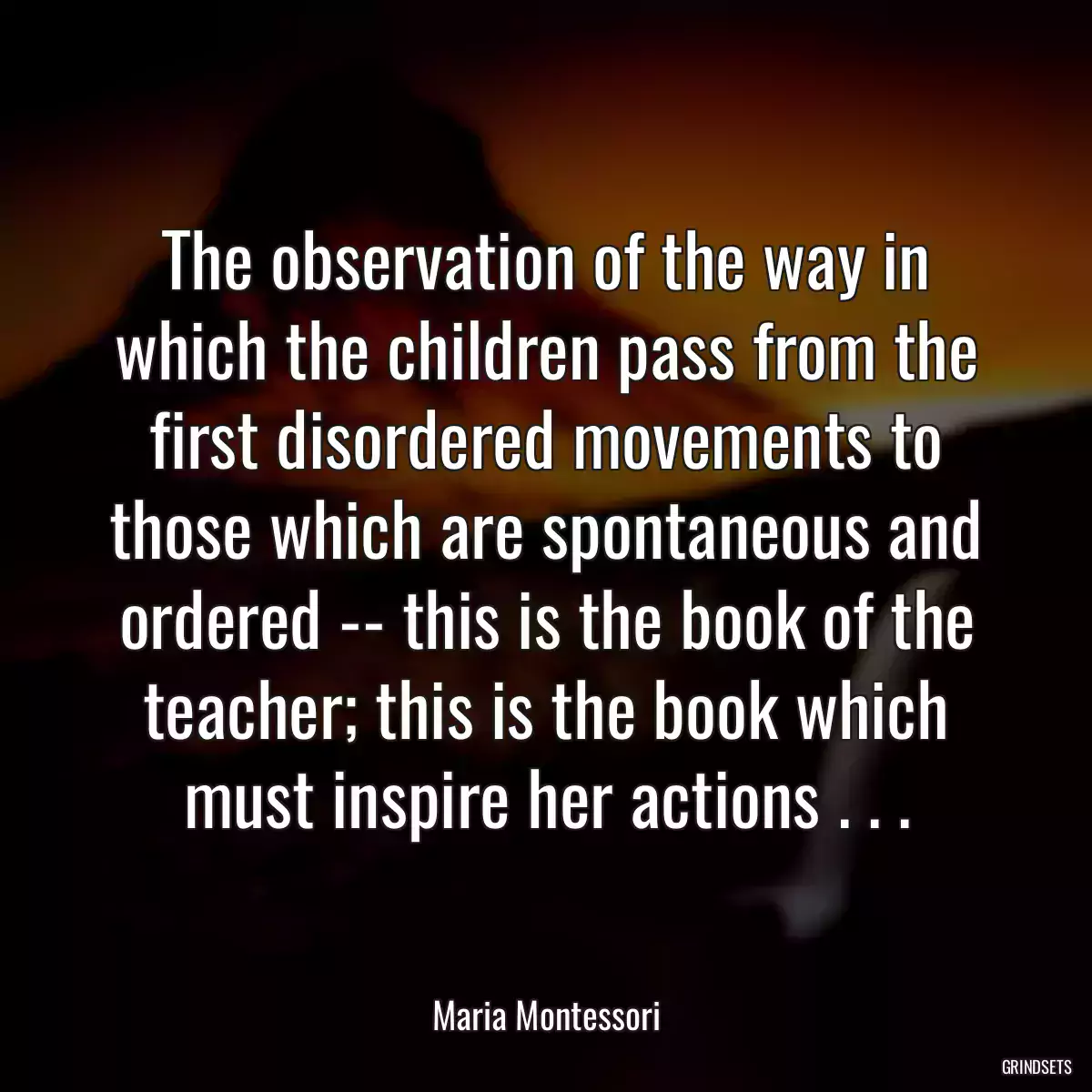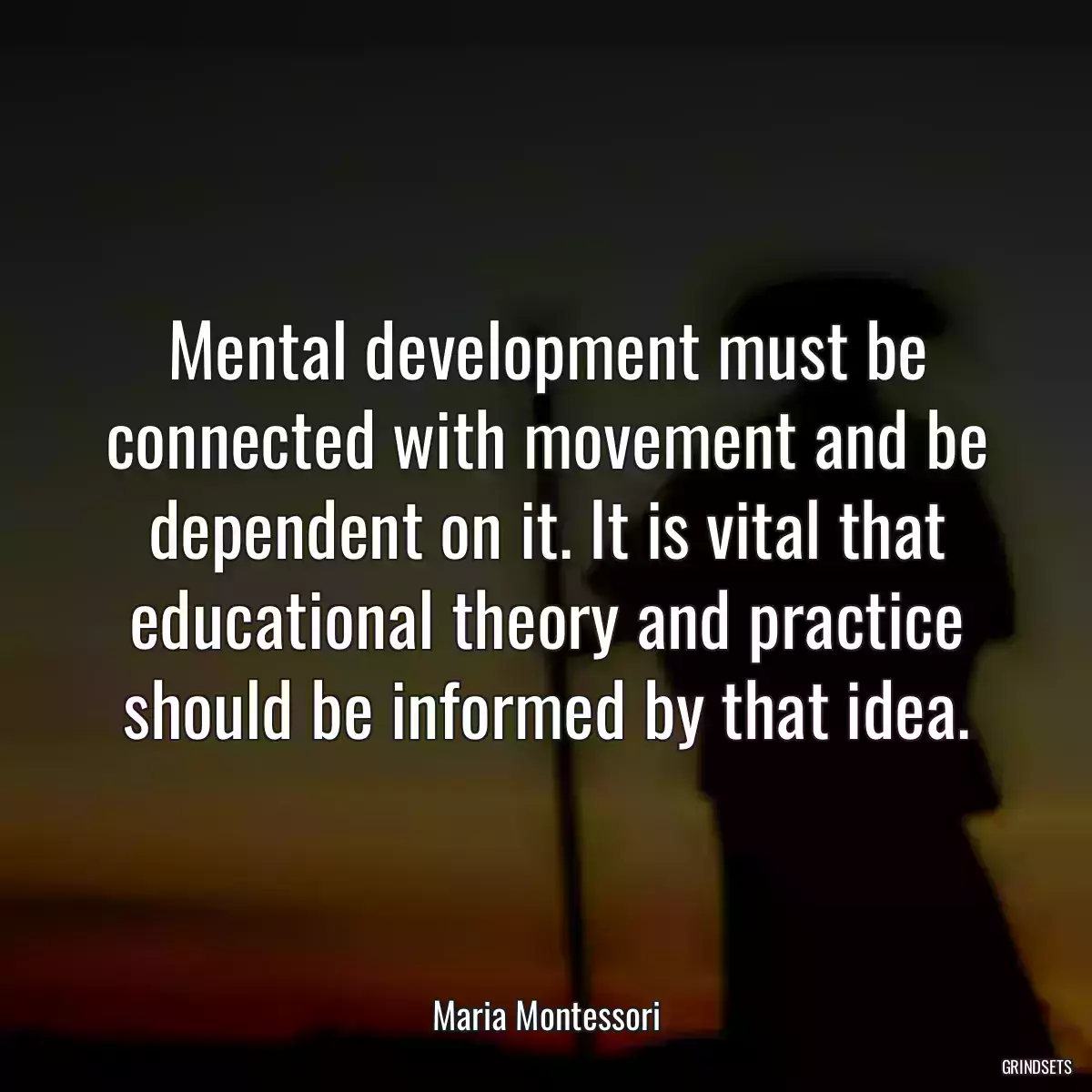
When the children had completed an absorbing bit of work, they appeared rested and deeply pleased. It almost seemed as if a road had opened up within their souls that led to all their latent powers, revealing the better part of themselves. They exhibited a great affability to everyone, put themselves out to help others and seemed full of good will.

